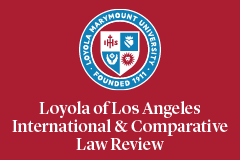Abstract
The reception of Anglo-American contractual standards in droit civil countries is not as straightforward as it would seem at first glance. The language expressing notions such as “breach of contract,” “representations & warranties,” or “indemnities” cannot be merely copied into agreements subject to the law of droit civil countries. They need to be transposed thereto, i.e., rendered in terms of legal institutions characteristic of the legal systems of such countries, to achieve the same functional results as those achievable in the place of origin of such notions.
The authors discuss the process of such transposition in the examples of Germany and Poland. In particular, they show that due to structural differences between the notions of a breach of contract in Germany and Poland (where it is fault-based) and in the Anglo-American world (where it is strict), a breach of warranty (which in a common law jurisdiction is a form of a breach of contract) is best expressed in German or Polish legal parlance as a guarantee agreement. Under such an agreement, the guarantor would not be able to avoid repairing the damage by proving that the breach of warranty occurred for reasons other than the guarantor’s lack of due care (in Poland) or reasons not attributable to the guarantor (in Germany). In short, in Germany or Poland, a claim to redress the damage, i.e., a claim for specific performance under a guarantee contract, would lead to similar functional results as a damages claim for a breach of warranty in common law jurisdictions.
A similar transposition, namely converting an Anglo-American indemnity contract (both prevent loss and redress loss indemnity) into a guarantee agreement, makes it possible to achieve economic results in Germany and Poland comparable to those in common law jurisdictions. In such jurisdictions, the amount of compensation due to the indemnitee is not typically diminished by doctrines characteristic of a damages claim for a breach of contract (such as remoteness, foreseeability, and a duty to mitigate the loss). In Germany, a prevent loss indemnity is still predominantly understood as a best-efforts contract obligating the indemnitor to avert the loss. In Poland, however, a guarantee contract is believed to operate similarly for both types of indemnities, regardless of whether a “hold harmless” or “indemnify” contract is applied.
Recommended Citation
Dr. Pawel Mazur and Dr. Hab. A. Szlęzak,
The Reception of Anglo-American Contractual Standards in Selected Droit Civil Systems: German and Polish Examples.,
47 Loy. L.A. Int'l & Comp. L. Rev. 99
(2024).
Available at: https://digitalcommons.lmu.edu/ilr/vol47/iss2/1
Included in
Business and Corporate Communications Commons, Business Law, Public Responsibility, and Ethics Commons, Corporate Finance Commons, International Business Commons, International Law Commons


